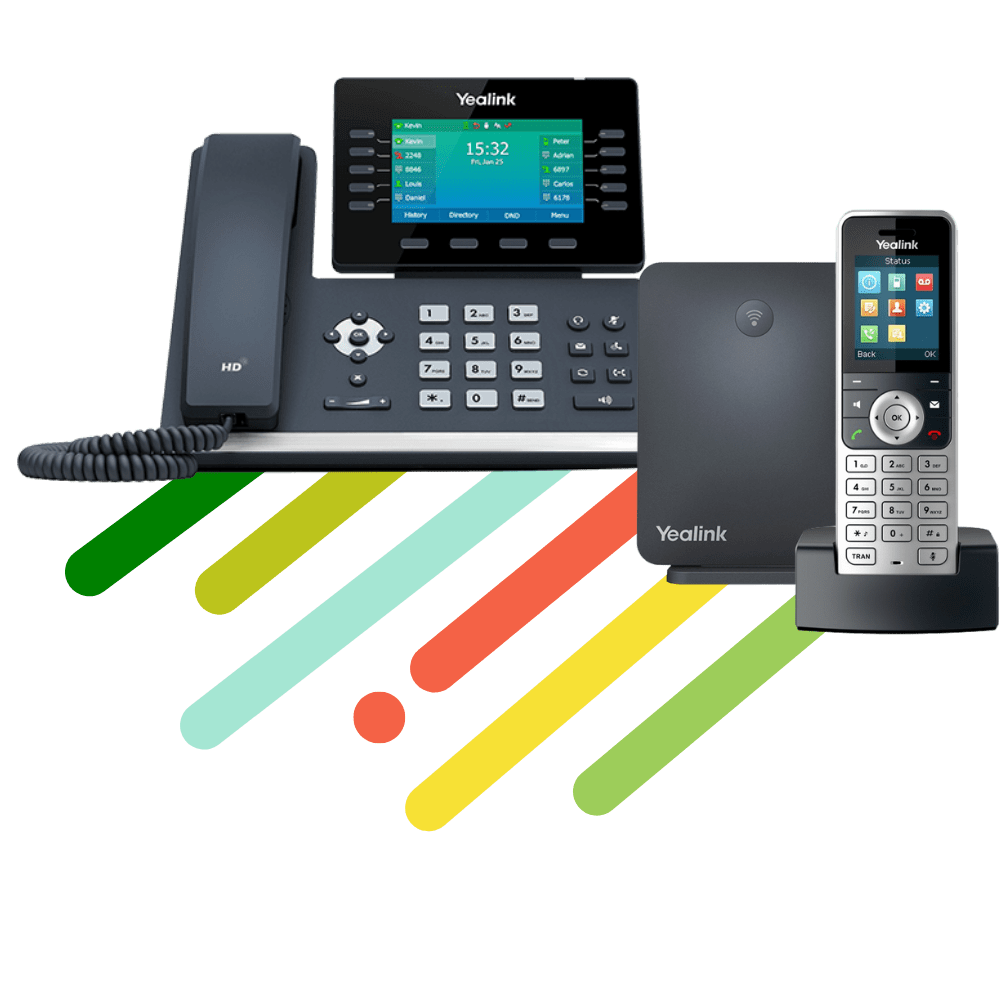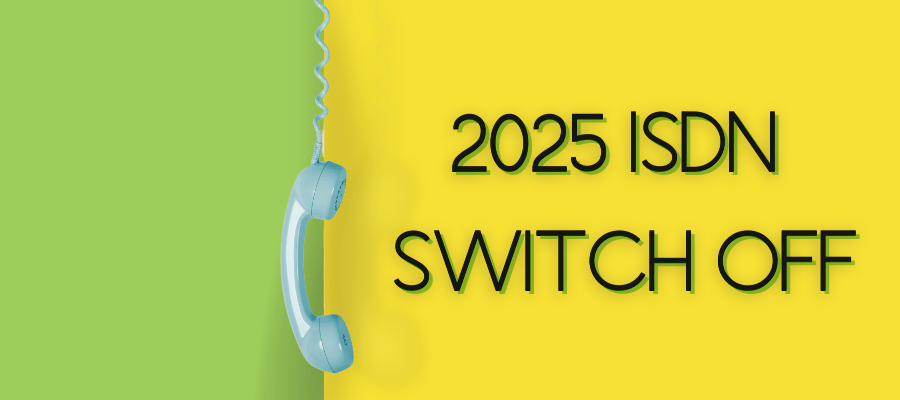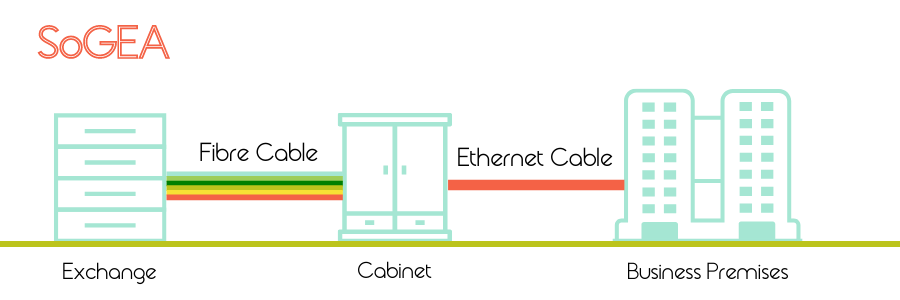Yes, you read that right. We’re saying goodbye to ISDN and PTSN lines in the year 2025.
You might be thinking “2025.. that’s ages yet.”
But now’s the best time to prepare, here at Connecting Britain, we can help you to futureproof your business with a selection of broadband solutions and hosted phone systems.
Still not sure?
Ok, here’s everything you need to know about the 2025 ISDN switch off, and what it means for businesses across the UK.

So, what is the ISDN switch off?
National telecoms provider BT has announced that by the year 2025 they plan to shut off their ISDN and PSTN services. For those that don’t speak in telecoms, that means traditional landline/phone lines and copper cabling.
This marks the end of analogue phone lines in the UK, moving communication platforms into an online space. This being said, the upcoming change comes as no surprise. Communication technology has been advancing past the use of analogue lines and into internet-based platforms for many years at this point. Most businesses across the UK are moving to or already have implemented a cloud-based phone system, being VoIP or Hosted telephony.
ISDN – Integrated Service Digital Network
This broadband technology replaced dial-up as the revolutionary first iteration of high speed internet in the 90’s. ISDN technology enabled businesses to send data via the internet through their phone lines.
PSTN – Public Switch Phone Network
This is what many would refer to as a classic analogue telephone system. A centuries old technology, PTSN was introduced in the 1800’s. Allowing for information to be transmitted through a copper wire network.
This technology has been the primary communication network for many businesses needing to fax documents or make phone calls for many years.

What does this have to do with Broadband?
The main issue business will face when switching their analogue lines over to a digital communications platform will be the capability of their broadband. With a digital platform comes the need for a decent broadband connection, the phones will now need an internet connection to make and receive calls.
Think of this process similarly to that of a zoom call or facetime. In the same way that a zoom call is performed through an internet connection, so will all phone calls in the UK.
As you can probably imagine, if your broadband connection isn’t very good, then this process could be rather difficult. This is why many other projects are currently taking place to improve Broadband connectivity for businesses across the UK.
Learn more about different types of Broadband and whether Full Fibre is available for you.
What does this mean for businesses who haven’t already made the switch from analogue services?
Switching to a Voip or Hosted telephony system isn’t hard. However, as previously mentioned, these systems require a reliable broadband connection.
To deal with the issues facing business in areas where Fibre broadband isn’t available, BT have introduced a new broadband service called SoGEA.
This new broadband technology is being rolled out in areas of the UK currently, with businesses already seeing the benefits.
What is SoGEA?
SoGEA stands for Single Order Generic Ethernet Access. It is a Fibre based technology that covers the last part of your broadband journey from the exchange to your premises.
A regular Fibre connection (FTTC) has a fibre cable running from the exchange to the green cabinet (PCP), located on the street near your premises. From this cabinet then runs an old analog, copper landline connection, this is where SoGEA is different. With a SoGEA connection, the final copper cable is replaced with an ethernet cable.
By making this upgrade, it provides you with faster speeds of up to 80mb/s and a much greater stability than that achieved with the copper cable.
What are the benefits of SoGEA?
SoGEA is reliable and cost effective, it’s a great option for businesses looking to upgrade their connection and keep their costs low. It also…
- Future-proofs your business
- Is easy to implement, with quick installation
- Leads to better flexibility and communications within your business
By having a connection which allows for an internet-based communications such as hosted telephones and Voip platforms, it means that businesses can be more flexible and efficient.



